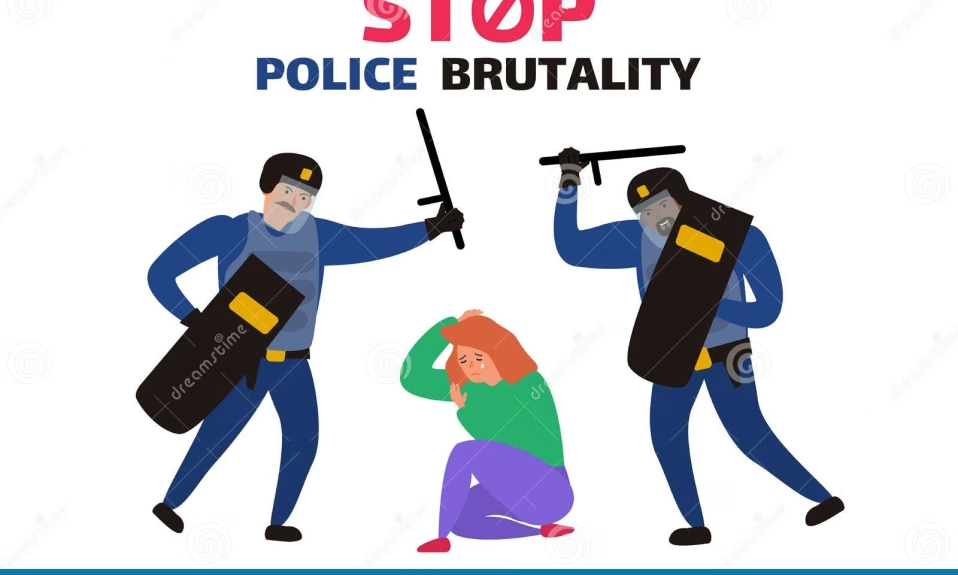Racial justice is an enduring and complex issue that involves creating a society where all people, regardless of race or ethnicity, are treated with fairness, equality, and dignity.
Written by: Godstime Silas
Racial justice is an enduring and complex issue that involves creating a society where all people, regardless of race or ethnicity, are treated with fairness, equality, and dignity. It requires dismantling systemic structures that perpetuate racial discrimination, addressing instances of police brutality, and promoting equality in all aspects of life, including education, employment, housing, and criminal justice. This article explores the multifaceted aspects of racial justice, focusing on key issues like racial discrimination, police brutality, and racial inequality.
Understanding Racial Discrimination
Racial discrimination involves treating individuals or groups unfairly based on their race or ethnicity. It manifests in various forms, from overt acts of racism to more subtle and systemic biases. Discrimination has deep historical roots, stemming from colonialism, slavery, and segregation. Although significant progress has been made, racial discrimination persists in many areas of society.
Forms of Racial Discrimination
Racial discrimination can occur in a range of settings, including employment, education, housing, and healthcare. In the workplace, it might involve hiring practices that favor one racial group over another, unequal pay, or limited promotional opportunities. In education, racial discrimination might be reflected in unequal funding for schools serving predominantly Black or Hispanic students, leading to disparities in educational outcomes.
Discrimination in housing can manifest through practices like redlining, where financial institutions deny services or loans to residents in certain neighborhoods based on racial composition. This practice has long-term consequences, creating segregated communities and perpetuating racial inequality.
Addressing Racial Discrimination
Efforts to combat racial discrimination often focus on creating legal frameworks that ensure equal treatment. Laws like the Civil Rights Act of 1964 in the United States aim to prohibit discrimination based on race, color, religion, sex, or national origin. However, legal remedies are only part of the solution. To achieve racial justice, society must also address systemic biases and work toward changing attitudes and behaviors.
Confronting Police Brutality
Police brutality, a form of racial discrimination, refers to the excessive use of force by law enforcement officers, often against people of color. High-profile incidents, such as the killings of George Floyd, Breonna Taylor, and Tamir Rice, have sparked widespread outrage and ignited movements like Black Lives Matter. These incidents highlight the need for accountability, transparency, and reform in policing.
The Impact of Police Brutality
Police brutality has far-reaching consequences. It erodes trust between law enforcement and the communities they serve, disproportionately affects Black and Hispanic individuals, and contributes to the over-policing of minority neighborhoods. The psychological impact of police violence can be profound, leading to trauma, fear, and a sense of injustice.
Reforms to Address Police Brutality
Reforms to address police brutality often focus on accountability and oversight. Measures such as the use of body cameras, independent investigations of police misconduct, and civilian oversight boards aim to increase transparency and hold officers accountable for their actions. Training programs that emphasize de-escalation techniques and anti-bias education can also help reduce instances of excessive force.
In addition, addressing the broader issue of systemic racism in law enforcement is crucial. This involves diversifying police departments, promoting community policing, and fostering positive relationships between officers and the communities they serve.
Tackling Racial Inequality
Racial inequality refers to the unequal distribution of resources, opportunities, and privileges among different racial groups. It encompasses a wide range of issues, including disparities in income, education, healthcare, and criminal justice. Achieving racial justice requires addressing these underlying inequalities.
Economic Disparities
Racial inequality is often most visible in economic terms. Data consistently show that Black and Hispanic individuals earn less, have higher unemployment rates, and face greater barriers to wealth accumulation compared to their white counterparts. This economic disparity is rooted in historical practices like slavery and segregation, as well as ongoing discrimination in the workforce.
Educational Inequality
Education plays a pivotal role in addressing racial inequality. However, disparities in funding, resources, and access to quality education persist. Schools in predominantly minority neighborhoods often receive less funding, resulting in fewer opportunities for students. Addressing this inequality involves ensuring equitable funding, providing access to quality education, and promoting diversity and inclusion in schools.
Criminal Justice and Mass Incarceration
The criminal justice system has long been a source of racial inequality. Black and Hispanic individuals are disproportionately represented in the prison population and are more likely to be subjected to harsh sentencing. Addressing this issue requires criminal justice reform, including reducing mandatory minimum sentences, promoting alternatives to incarceration, and addressing racial biases within the system.
The Path to Racial Justice
Achieving racial justice is a collective effort that requires a multifaceted approach. It involves addressing racial discrimination, police brutality, and racial inequality in all its forms. Key steps toward racial justice include:
1. Education and Awareness: Raising awareness about racial discrimination and its impact is essential. Educational programs that promote diversity and inclusion can help change attitudes and foster understanding.
2. Legal Reforms: Strengthening anti-discrimination laws, promoting police reform, and addressing racial biases in the criminal justice system are critical legal measures to combat racial discrimination.
3. Economic Equity: Promoting economic opportunities and addressing income disparities are crucial to achieving racial justice. Initiatives that support minority-owned businesses and ensure fair hiring practices can make a significant impact.
4. Community Engagement: Building strong, inclusive communities is a key component of racial justice. Efforts to foster positive relationships between law enforcement and the communities they serve can help rebuild trust.
By addressing these issues, society can move toward a more just and equitable future. Racial justice is not a single solution but an ongoing journey that requires commitment, understanding, and collective action.






